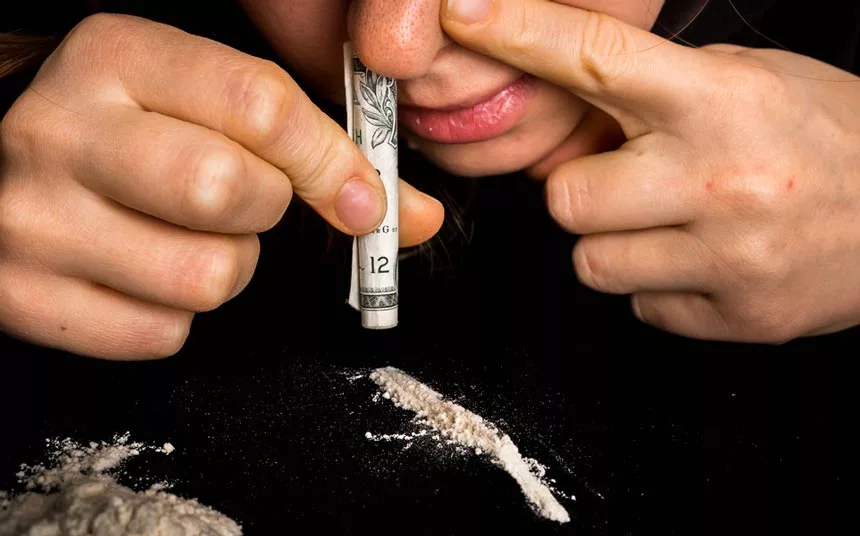How Long Does Crack Cocaine Affect You?
Table of Contents
Crack cocaine is a powerful and highly addictive drug that has become increasingly popular in recent decades. It is a form of cocaine that is smoked, resulting in an intense and immediate high that is often accompanied by a strong craving for more.
This powerful stimulant is derived from the coca plant native to South America. It is an illegal substance that is often referred to as “the devil’s drug” due to its extremely addictive nature and the physical and psychological harm it can cause.
Crack cocaine, or “crack”, is a form of cocaine that has been processed with baking soda or ammonia and heated to create smokeable “rocks”. Crack cocaine has a much more potent effect than regular cocaine and is highly addictive, making it one of the more dangerous drugs available.
So, how long does a crack high last? The answer depends on a few different factors, such as the amount of the drug taken, the user’s tolerance, and the method of administration.
Keep reading to learn more about cocaine use, how long a crack high lasts, and how the Find Addiction Rehabs team can help you find substance abuse treatment services nationwide, today!
Factors That Affect How Long a Crack High Lasts
Crack cocaine is a highly addictive stimulant drug that produces a short-lived, intense high. The effects of crack cocaine usually last between 5 and 10 minutes, but there are several factors that can affect how long cocaine highs will last.
Understanding these factors can help people who use crack cocaine make informed decisions about their drug use and be better prepared for potential consequences. Some of these include:
The Amount Used
The amount of crack cocaine used is one of the main factors that affect how long a crack high lasts. The more of this drug someone uses, the longer and more intense the effects of cocaine will be.
This is because larger amounts of crack cocaine increase the amount of dopamine released in the brain, which produces the pleasurable feeling associated with the drug. However, taking higher doses of this drug can also increase the user’s risk of experiencing a cocaine overdose, especially if it is being mixed with other substances.
Excessive crack use can also lead to drug addiction, as well as other forms of substance use as the person continues to regain the feeling of their initial high. Once the user has formed a dependence on crack, they will need professional help to safely and successfully stop using.
The Purity of the Drug
The purity of the substance being smoked will also affect the duration of a high. Crack that is cut or mixed with other drugs will not produce as strong of an effect as a more pure version. This is because mixing drugs reduces the number of active ingredients and can make the effects less potent.
The Method of Use
The method of use can also affect the duration of a crack high. For example, smoking cocaine produces a more intense high than snorting or ingesting it. Smoking crack cocaine also causes the drug to enter the bloodstream more quickly and reach the brain faster, producing more intense and immediate effects.
Snorting powder cocaine can produce more lingering effects and a less intense high. While many people snort cocaine, this is not as easily doable with crack. Whereas the rock-like form of crack is meant to be heated and smoked, snorting cocaine requires the drug to be in a powder form.
No matter what the preferred method of drug abuse is or how long the high lasts, repeated use of crack is extremely dangerous and will need professional treatment to be properly addressed.
The Frequency of Use
The frequency of use is also an important factor in determining how long a crack high lasts. People who use crack often build up a tolerance to the drug, which reduces the intensity.
If the central nervous system has become used to the intense effects of crack use, it will take higher doses to get the same high. However, this will increase the user’s risk of overdose, which can be life-threatening if not properly addressed.
The Dangers of Abusing Crack Cocaine

The use of crack can lead to a number of serious physical and psychological health issues. Knowing the potential side effects of crack can help those struggling with this substance get the help they need to live a healthy life free from the dangers of their addiction.
Physically, crack users can suffer from respiratory problems, heart problems, high blood pressure, and an increased risk of cardiac arrest, heart attack, and stroke. Crack cocaine can also cause long-term changes in the brain, leading to cognitive deficits and an increased risk of mental health disorders.
In addition, IV crack users are at an increased risk of contracting HIV, hepatitis, and other diseases due to sharing contaminated needles.
Psychologically, crack cocaine puts one at an increased risk of developing paranoia, depression, and anxiety. Heavy cocaine users also often exhibit violent and aggressive behavior under the influence of this powerful stimulant.
Finally, there is a high risk of overdose when abusing crack. This can be a life-threatening condition characterized by increased blood pressure, manic behavior, nausea, weakness, hallucinations, and other symptoms.
Recognizing the Signs of a Crack Cocaine Addiction
If you suspect someone you care about has a crack cocaine addiction, it is important to recognize the signs so you can get them to the right form of help. The Find Addiction Rehabs team is here to help you find treatment options nationwide that will help you take back control over your life.
The most common sign of this substance use disorder is a sudden change in behavior. This can include increased irritability, loss of interest in activities you used to enjoy, and signs of depression.
You may become isolated from family members and friends, and appear to be preoccupied with thoughts of using the drug. You may also have trouble sleeping, and your energy levels may be affected throughout the day.
Another sign of crack addiction is an increase in risky behavior. When you are addicted to crack cocaine, you are more likely to engage in dangerous activities, such as driving while under the influence or engaging in unprotected sex. You may also become violent and aggressive or may suffer from delusions and paranoia.
Scraping Rock Bottom: More Signs of Crack Addiction
Financial problems are also a common sign of a crack cocaine addiction. If you have an addiction, you may spend large amounts of money on the drug and may struggle to pay bills or keep up with other financial obligations. You may also start stealing or selling drugs to support your habit.
Physical signs of a crack cocaine addiction include severe weight loss, poor hygiene, and sores or scabs on your skin. You may have less interest in showering or keeping up with other maintenance and self-care activities.
If you think you or someone you care about may have a crack cocaine addiction, it is important to get help as soon as possible. Call the Find Addiction Rehabs hotline now to find out what recovery resources are available to you.
The Cocaine Addiction Treatment Process

In light of the dangers crack presents, there are several treatments available for those struggling with cocaine addiction. The best treatment plan will be tailored to your specific needs and should include a combination of behavioral therapies, medication, and recovery support.
The first step in the cocaine addiction treatment process is detoxification. During this process, your body is rid of all traces of cocaine. Medical detox programs can help fight the early symptoms of withdrawal and reduce drug cravings to minimize your risk of relapse.
Once detox is complete, you can begin a treatment program to address the psychological and social issues associated with your addiction. This may include inpatient or outpatient rehabilitation programs, as well as various behavioral therapies and recovery support groups.
Medication-assisted treatment (MAT) is another option for those struggling with a crack addiction. This form of treatment combines medication with therapy and counseling to reduce withdrawal symptoms and cravings.
If you or a loved one is struggling with crack abuse, know that you are not alone and help is available. The Find Addiction Rehabs team can help you find effective treatment programs that will help you get your life back on track.
Find Help to Stop Using Crack Today!

If you or a loved one is struggling with a crack addiction and want to stop using, the Find Addiction Rehabs team is here to help. We work with an extensive network of rehab facilities nationwide that can address all of your recovery needs.
Just by calling our 24/7 hotline, we can provide you with recovery tools and resources and help you get started on your path to achieving long-term sobriety, today! You deserve a chance at a happy and healthy life. Call now!
FAQs On How Long Does a Crack High Last?
How Long Does Cocaine Stay in the System?
Cocaine is metabolized in the body quickly and is detectable in the blood, urine, and saliva shortly after it is used. The time it takes for cocaine to clear from the body varies depending on the individual’s metabolism, body weight, and amount of cocaine used. Generally, the half-life of cocaine is between 1-2 hours.
In the blood, cocaine can be detected within minutes of use and typically remains detectable for up to 24 hours. In the urine, cocaine can be detected for up to three days after use and for up to one week in saliva. Hair testing is the most accurate way to detect crack use, with up to a 90-day detection window.
What is the Difference Between Crack Cocaine and Regular Cocaine?
Crack cocaine is the street name for a form of cocaine that has been processed to form a rock-like substance. It is commonly smoked in a glass pipe, or “crack pipe”. Crack cocaine is usually cheaper than regular cocaine and is often used by those who cannot afford the higher-priced powder cocaine.
Regular cocaine, on the other hand, is a powdery substance that is usually snorted. It is often referred to as “coke” and is typically more expensive than crack cocaine.
Charles F. has been an active part of the Florida recovery community for over 5 years. He began as a behavioral health technician at an addiction treatment facility in Ocala, Florida and has since begun training as a Licensed Addiction and Chemical Dependency counselor in Boca Raton. Charles’ passion involves the promotion of recovery and helping spread the hope of recovery to as many readers as possible!



